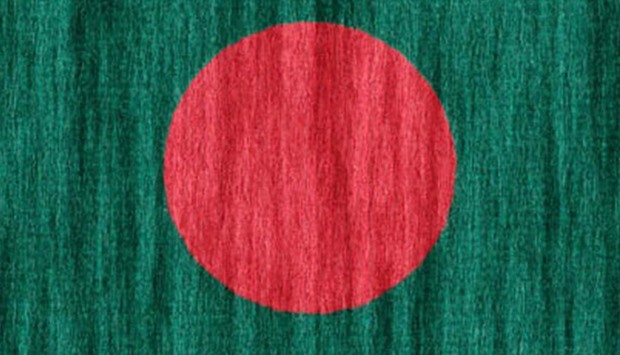Bangladesh police detained three people yesterday over the gruesome murder of a Hindu tailor one day earlier, the latest deadly attack on minorities claimed by the Islamic State group.
A senior officer said the principal of an Islamic madrassa and two others were being held for questioning over the hacking to death of Nikhil Chandra Joarder outside his shop in Tangail town, northwest of Dhaka.
Police suspect the 50-year-old Joarder may have been targeted on Saturday for making derogatory remarks about the Prophet Muhammad four years ago, as Bangladesh reels from rising Islamist violence.
Tangail deputy police chief Aslam Khan said the three have been “taken into police custody for questioning” including a local leader of the country’s largest Islamist party, Jamaat-e-Islami.
“The madrassa principal filed a complaint against the deceased in 2012 for making derogatory remarks against the Prophet Muhammad,” Khan said.
The attack comes after two gay activists were hacked to death last week, attacks claimed by a Bangladeshi branch of Al Qaeda, while a liberal professor was also killed days earlier.
Suspected Islamists have murdered at least 30 members of religious minorities, secular bloggers and other liberal activists, foreigners and intellectuals in Bangladesh in the past three years.
The IS group claimed responsibility for the latest attack, carried out by three unknown men who arrived on a motorbike.
It claimed Joarder “was known for blaspheming the Prophet Muhammad,” the IS-affiliated Amaq news agency said, citing a source, according to SITE Intelligence Group.
Home Minister Asaduzzaman Khan rejected the claim of responsibility on Saturday, repeating the government’s stance that the jihadist group, along with Al Qaeda, has no known presence in Bangladesh.
The secular government and the police have instead blamed local banned militant groups for the attacks.
Four years ago, Joarder was charged with hurting religious sentiments and he spent three weeks in jail, before the unknown complainant withdrew the case against him.
In February, suspected Islamists decapitated a top Hindu priest inside a temple complex in one of the country’s northern districts, an attack also claimed by the IS group.
A long-running political crisis in officially secular Bangladesh has radicalised opponents of the government and analysts say Islamist extremists pose a growing danger.
Hindus, the country’s largest religious minority, make up nearly 10% of Bangladesh’s 160mn population of mainly Sunni Muslims.
Bangladesh’s majority Muslim population has historically had relatively liberal values, says Afsan Chowdhury, a political analyst, but those traditions are now under threat. “Islamic militancy has been growing for the last 10 to 15 years as political institutions have weakened,” he adds.
Murders of gay activists and secularists highlight culture of impunity, with Sheikh Hasina and Awami League accused of failing to act.
After Prime Minister Sheikh Hasina held on to power in a 2014 election boycotted by the main opposition Bangladesh Nationalist Party and its allies, authorities arrested senior opposition leaders on charges of instigating violence.
“The government has very effectively punished the opposition to the point they are not really a political force any more,” says Chowdhury. The vacuum of a strong opposition has made the atmosphere unpredictable.
The spate of killings started in February 2013 after activists demanded that the government hang everyone convicted of collaborating with the Pakistan army during the country’s war of independence from Pakistan in 1971.
Many of those brought to trial, in proceedings widely criticised by human rights groups for not meeting international standards, were linked to the opposition and its Islamist allies. One Islamist group, Hefazat-e-Islam, responded by drawing up a list of 84 atheist bloggers and demanding that the government take action against them for publishing blasphemous content online. At least five of the victims since 2013 were named on that list.
But there has been little official support for others who appear on it, and families of victims and those at risk fear police investigations are too slow and ineffective. So far at least 46 people have been arrested, but only two have been found guilty; they were given the death penalty for their role in the killing of the blogger Ahmed Rajib Haider.
“An arrest is not an assurance of justice,” said Sarkar, the
secular campaigner.
There is also frustration that some killers of Avijit Roy, a murdered American blogger of Bangladeshi origin, have been able to escape the country.
Concerns about security are mounting from the international quarters after the killing of Mannan. “The government will try to hunt down possible suspects (in Mannan’s killing) but whether they can really get at the actual culprit, there is a great deal of doubt,” Shahiduzzaman said.
Survivors feel forgotten. Asha Mone’s husband, the blogger Niladry Chattopadhya, was hacked to death in front of her, but police have not contacted her in five months, she said. Officers said they had arrested five suspects in relation to the case.

BANGLADESH
